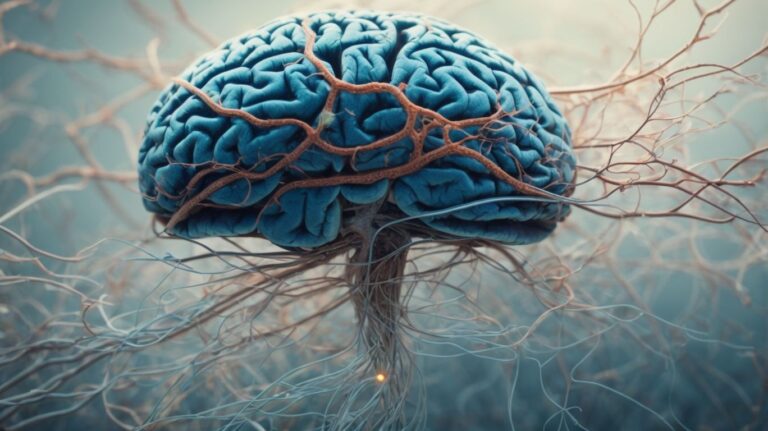Have you ever considered the powerful link between your mind and body? The mind-body connection plays a crucial role in our psychological health, influencing everything from stress levels to overall well-being.
In this article, we will explore how the mind affects the body, the impact of physical health on mental health, and holistic approaches to psychological well-being. Discover how practices like mindfulness, yoga, and therapy can improve your mind-body connection for better psychological health.
Contents
- 1 What is the Mind-Body Connection?
- 2 How Does the Mind Affect the Body?
- 3 How Does the Body Affect the Mind?
- 4 What is the Role of the Mind-Body Connection in Psychological Health?
- 5 How Can One Improve the Mind-Body Connection for Better Psychological Health?
- 6 Frequently Asked Questions
- 6.1 What is the mind-body connection in psychological health?
- 6.2 How does the mind-body connection affect our psychological health?
- 6.3 Can improving the mind-body connection improve psychological health?
- 6.4 What role does the mind-body connection play in the development of mental health conditions?
- 6.5 How can we strengthen the mind-body connection in psychological health?
- 6.6 Can the mind-body connection be used to treat psychological health issues?
What is the Mind-Body Connection?
The mind-body connection refers to the intricate relationship between psychological processes and physical well-being, highlighting how mental states can influence physical health and vice versa.
This dynamic connection underscores the idea that our thoughts and emotions can have a profound impact on our physical bodies.
For example, chronic stress can trigger the body’s stress response system, leading to a cascade of physiological changes such as increased heart rate, elevated blood pressure, and compromised immune function.
Over time, the persistent activation of the stress response system due to prolonged stress can contribute to the development of various health issues, including cardiovascular problems, digestive disorders, and weakened immune responses.
Understanding and managing stress is crucial in maintaining a balanced mind-body connection and promoting overall well-being.
How Does the Mind Affect the Body?
The mind exerts a profound impact on the body, influencing various physiological processes and overall health outcomes through the mind-body connection.
When an individual experiences intense emotions or prolonged periods of stress, the body responds by releasing stress hormones like cortisol into the bloodstream. This triggers the activation of the sympathetic nervous system, leading to a cascade of physiological changes aimed at preparing the body for a ‘fight or flight’ response. Prolonged activation of the stress response system can have detrimental effects on physical health, as it can contribute to conditions such as hypertension, digestive issues, and impaired immune function.
Stress and the Mind-Body Connection
Chronic stress can significantly impact the mind-body connection, triggering the release of stress hormones like cortisol that can have long-term implications on both mental and physical health.
In response to chronic stress, the body’s natural balance can be disrupted, leading to a continuous state of heightened alertness and tension. The dysregulation of cortisol, often referred to as the ‘stress hormone,’ can lead to various health issues such as weakened immune function, increased risk of cardiovascular diseases, and even cognitive impairments.
Emotional State and Physical Health
Emotional states play a vital role in shaping physical health outcomes, as they can impact the functioning of the stress response system and the body’s overall well-being.
When individuals experience prolonged stress due to unresolved emotional turmoil, it can lead to a dysregulated stress response, contributing to various stress-related conditions such as hypertension, diabetes, and weakened immune function.
Conversely, practicing effective emotional regulation techniques such as mindfulness, deep breathing exercises, and seeking social support can help mitigate the harmful effects of chronic stress on the body, promoting improved physical health and resilience.
Beliefs and Attitudes Impact on the Body
Beliefs and attitudes have a profound impact on the mind-body connection, shaping one’s perception of health, well-being, and the ability to cope with stressors.
Our mental outlook plays a crucial role in how we respond to challenges, affecting our physical health in ways we may not always recognize. The belief system that one holds can influence hormone regulation, immune responses, and even the expression of genes related to stress. Studies have shown that individuals with a positive mindset tend to have lower levels of inflammatory markers and a stronger immune system.
The way we interpret and internalize stressful events can impact the body’s response to them. For example, someone who views stress as a threat may experience heightened cortisol levels, while another individual with a more resilient mindset might see stress as a challenge and respond with increased problem-solving skills.
How Does the Body Affect the Mind?
The body’s influence on the mind is profound, with physiological processes impacting cognitive functions, emotional responses, and overall mental well-being through the mind-body connection.
In fact, the intricate relationship between the body and mind extends far beyond what meets the eye. One crucial aspect of this intricate connection is the gut-brain axis. This gut-brain connection serves as a bidirectional communication pathway, where the gut and the brain interact continuously, influencing each other’s functions.
Research has shown that the health of the gut directly affects mental states such as stress, anxiety, and even mood disorders. The gut is home to millions of neurons and a complex ecosystem of bacteria, collectively known as the gut microbiome. These gut microbes play a significant role in producing neurotransmitters like serotonin, often referred to as the ‘happy hormone.’
The Gut-Brain Connection
The gut-brain connection is a key aspect of the mind-body relationship, as gut health can influence cognitive processes, emotional responses, and mental conditions.
The intricate communication between the gut and the brain is facilitated by the gut-brain axis, a bidirectional pathway that allows these two vital systems to interact seamlessly.
- When the gut microbiome, which comprises trillions of microorganisms, is in balance, it contributes to emotional regulation and overall mental well-being.
- Disruptions in the gut can impact the production of neurotransmitters like serotonin and dopamine, which play crucial roles in mood regulation and cognitive function.
Research has shown that conditions such as anxiety, depression, and even neurodegenerative disorders may be influenced by disturbances in gastrointestinal health, highlighting the profound link between gut health and mental wellness.
Physical Health and Mental Health
Physical health directly influences mental well-being through the mind-body connection, with lifestyle changes and disease prevention strategies playing a crucial role in promoting overall mental health.
Engaging in regular physical activity not only improves physical fitness but also releases endorphins, the body’s natural mood elevators. This helps in reducing stress, anxiety, and symptoms of depression. Incorporating effective self-care practices such as mindfulness meditation, healthy eating habits, and adequate sleep can enhance emotional well-being.
Prioritizing preventive healthcare measures like routine check-ups and vaccinations can prevent illnesses that may have negative effects on mental health. By adopting a holistic approach that addresses both physical and mental aspects, individuals can achieve a better state of overall wellness.
Exercise and Mental Well-being
Regular exercise is a powerful tool for improving mental well-being, as physical activity can enhance mood, cognitive functions, and overall quality of life through the mind-body connection.
Engaging in physical activity triggers the release of endorphins, often referred to as the ‘feel-good’ hormones, which can help reduce feelings of stress, anxiety, and depression. Exercise promotes better sleep patterns, which are crucial for maintaining emotional balance and mental clarity. The cognitive benefits of regular physical activity extend to increased focus, productivity, and memory retention, making it an essential component of a healthy lifestyle for holistic well-being.
What is the Role of the Mind-Body Connection in Psychological Health?
The mind-body connection plays a crucial role in psychological health, influencing mental states, emotional responses, and overall well-being through integrated body-mind processes.
Research suggests that chronic stress can manifest physically through conditions like hypertension, digestive issues, and weakened immunity as a result of prolonged activation of the body’s stress response system.
On the flip side, implementing mindfulness techniques such as meditation or yoga can not only calm the mind but also positively impact physical health by reducing inflammation and improving sleep quality, highlighting the bidirectional relationship between mental and physical well-being.
The Impact of Mental Health on Physical Health
Mental health significantly influences physical well-being through the mind-body connection, with conditions like depression and anxiety impacting immune responses, inflammation, and overall health.
Chronic stress, often associated with mental health disorders, can lead to an overactivation of the body’s stress response, resulting in prolonged increases in cortisol levels. This can suppress the immune system, making individuals more susceptible to illnesses. Individuals with untreated mental health conditions may engage in behaviors that negatively affect their physical health, such as poor diet, lack of exercise, and substance abuse.
The mind-body connection plays a crucial role in how the body responds to treatment for mental health disorders. Psychotherapy, mindfulness practices, and stress-reduction techniques can not only improve mental health but also positively impact physical health outcomes. For instance, studies have shown that mindfulness-based therapies can reduce inflammation markers in the body and boost immune function.
The Impact of Physical Health on Mental Health
Physical health plays a pivotal role in shaping mental well-being through the mind-body connection, with chronic health conditions and lifestyle choices affecting emotional states and cognitive processes.
Studies have shown that individuals facing chronic illnesses often experience heightened levels of stress, anxiety, and depression due to the physical toll these conditions take on their bodies. This can lead to challenges in coping mechanisms and overall psychological resilience.
Addressing physical health issues through comprehensive treatment plans and incorporating complementary health approaches such as mindfulness meditation, yoga, or acupuncture can play a significant role in alleviating these mental burdens and promoting a more balanced state of well-being. By making mindful lifestyle changes, individuals can positively impact their mental health by reducing stress levels, fostering emotional regulation, and enhancing overall cognitive function.
Holistic Approaches to Psychological Health
Holistic approaches encompass a range of mind-body therapies that integrate psychological and physical well-being, offering comprehensive solutions for mental health conditions and promoting overall wellness.
The connection between the mind and body is a fundamental aspect of holistic medicine, emphasizing that mental health is intricately tied to physical well-being. Techniques like cognitive-behavioral therapy (CBT) focus on changing patterns of thinking and behavior to improve mental health, while mindfulness-based stress reduction (MBSR) helps individuals cultivate present-moment awareness to manage stress and anxiety effectively.
These approaches can be particularly beneficial for individuals struggling with conditions like depression, anxiety disorders, and PTSD, as they address the underlying psychological factors contributing to these issues. By incorporating holistic therapies into treatment plans, individuals can experience a more balanced and integrated approach to mental health care, fostering long-term well-being.
How Can One Improve the Mind-Body Connection for Better Psychological Health?
Enhancing the mind-body connection is essential for improving psychological health, with practices like mindfulness, meditation, yoga, and therapy offering effective ways to cultivate holistic well-being.
These practices not only help in reducing stress and anxiety levels but also promote a sense of inner peace and balance. Mindfulness techniques, such as focused breathing and body scans, can train the mind to be present in the moment, fostering mental clarity and emotional resilience. Similarly, engaging in regular yoga sessions not only enhances physical flexibility and strength but also boosts mental alertness and relaxation through the synchronization of breath and movement.
Mindfulness and Meditation
Mindfulness and meditation are powerful tools for enhancing psychological health, promoting self-awareness, emotional regulation, and overall well-being through the mind-body connection.
Incorporating regular mindfulness practices into daily routines can lead to reduced stress levels, improved focus, and a greater sense of inner peace. Studies have shown that mindfulness-based interventions can help manage anxiety, depression, and insomnia by cultivating a more positive mindset and increasing resilience to life’s challenges. By training the mind to be more present and aware, individuals can gain a deeper understanding of their thoughts, feelings, and behaviors, leading to healthier coping mechanisms and improved interpersonal relationships.
Mindfulness and meditation have been linked to enhanced cognitive functioning, including better memory retention, enhanced creativity, and increased mental clarity. These practices encourage individuals to slow down, observe their thoughts without judgment, and respond thoughtfully rather than reactively, resulting in heightened emotional intelligence and greater self-control. By fostering a state of mindfulness, individuals can tap into their inner resources, build resilience, and cultivate a more positive outlook on life.
Yoga and Other Mind-Body Practices
Yoga and other mind-body practices offer holistic approaches to psychological health, combining physical movements, breathwork, and mindfulness to promote mental and emotional well-being.
One of the key aspects of yoga is its emphasis on connecting the mind and body through deliberate movement and controlled breathing. The physical postures, known as asanas, help release tension and improve flexibility, while the focus on breath awareness can calm the nervous system, reducing stress levels.
The practice of mindfulness in yoga encourages individuals to be present in the moment, cultivating a sense of inner peace and awareness. This combination of physical, mental, and emotional elements can significantly enhance one’s psychological health by fostering a balanced and harmonious relationship between the body and the mind.
Therapy and Counseling
Therapy and counseling provide invaluable support for psychological health, offering evidence-based interventions, coping strategies, and emotional guidance to enhance overall well-being through the mind-body connection.
One of the most common therapeutic approaches used in counseling is cognitive-behavioral therapy (CBT), which focuses on identifying and changing negative thought patterns and behaviors that contribute to mental health issues.
Another effective method is mindfulness-based interventions, which help individuals cultivate present moment awareness to reduce stress and improve emotional regulation.
By integrating these techniques into therapy sessions, individuals can develop resilience, self-awareness, and coping skills to navigate life’s challenges more effectively.
Frequently Asked Questions
What is the mind-body connection in psychological health?
The mind-body connection refers to the relationship between our thoughts, emotions, and behaviors and how they impact our physical health. In psychological health, this connection can greatly influence our overall well-being and can play a significant role in the development and management of mental health conditions.
How does the mind-body connection affect our psychological health?
Our thoughts and emotions can produce stress responses in our bodies, which can lead to physical symptoms and impact our mental health. For example, chronic stress can weaken our immune system and increase our risk for developing depression and anxiety.
Can improving the mind-body connection improve psychological health?
Yes, by actively working to improve the mind-body connection, individuals can improve their psychological health. This can include practices such as mindfulness, meditation, and exercise, which can help to reduce stress and promote overall well-being.
What role does the mind-body connection play in the development of mental health conditions?
The mind-body connection can play a significant role in the development of mental health conditions. Negative thoughts and emotions can contribute to the development of conditions such as depression and anxiety, while positive thoughts and emotions can facilitate healing and recovery.
How can we strengthen the mind-body connection in psychological health?
There are various ways to strengthen the mind-body connection, including practicing mindfulness and relaxation techniques, maintaining a healthy lifestyle, and seeking therapy. It is important to find what works best for each individual to promote overall well-being.
Can the mind-body connection be used to treat psychological health issues?
Yes, the mind-body connection can be used as a complementary approach to traditional treatments for psychological health issues. By incorporating practices that promote a strong mind-body connection, individuals may experience improved mental and physical health outcomes.



